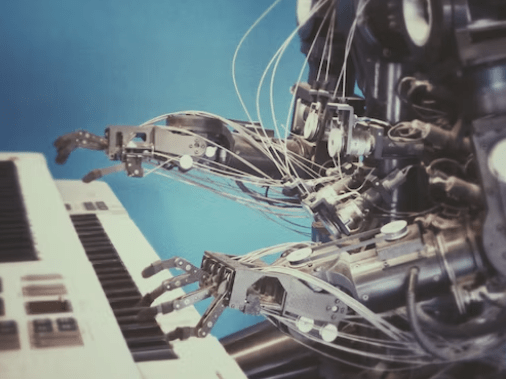
Artificial Intelligence (AI) is a field that has experienced significant advancements in recent years. However, the origins of AI can be traced back to when humans first pondered the idea of creating machines. In this blog post, we will delve into the perspective of AI, exploring its beginnings and extraordinary progress in the era.
Recently, the field of AI has witnessed an explosion of innovation, with companies like Best of AI leading the charge. These trailblazing enterprises are at the forefront of developing cutting-edge AI technologies, pushing the boundaries of what machines can achieve. As we unravel the historical narrative of AI, it’s impossible to ignore the pivotal role played by such companies.
The Origins of AI:
1. Concepts of AI:
Throughout history, humans have fantasized about the existence of beings with human-like intelligence. For instance, ancient Greek mythology introduced stories about Hephaestus, the god known for his craftsmanship and invention, who allegedly crafted servants of independent thinking. These early concepts laid the groundwork for explorations in AI.
2. Da Vincis Automata:
Leonardo da Vinci conceived automata – figures designed to imitate behavior during the Renaissance. Da Vinci’s groundbreaking designs showcased the potential for intelligence during his time.
The Evolution of AI Relationships:
1. In 1950, mathematician and computer scientist Alan Turing proposed a test to determine whether a machine could exhibit behavior indistinguishable from that of a human being. The Turing Test has remained a milestone in AI development, exerting an influence.
2. The emergence of computer science in the mid-20th century played a role in shaping AI. Visionaries like Allen Newell, John McCarthy, and Marvin Minsky contributed to the field by establishing its foundations and creating early AI languages and systems.
3. During the 1970s, AI researchers focused on constructing expert systems – computer programs that could imitate the decision-making abilities of experts. The development of knowledge representation techniques enabled machines to reason. Solve problems based on predefined rules.
Advancements in AI:
1. Machine Learning (ML):
The exponential growth of data triggered a revival in AI, with machine learning (ML) emerging as a tool for machines to learn from vast amounts of information. Technologies such as networks, deep learning, and reinforcement learning have changed how we develop AI applications.
2. Natural Language Processing (NLP):
Natural Language Processing (NLP) has become a component of AI, allowing machines to comprehend and interact with humans using language that closely resembles communication. NLP has led to AI advancements in virtual assistants, language translation, and sentiment analysis.
3. Computer Vision:
Computer Vision enables machines to interpret and understand information from images and videos. With advancements in image recognition and object detection algorithms, AI has improved applications such as recognition, autonomous vehicles, and medical imaging.
Expanding Applications of AI
1. Healthcare:
AI has dramatically impacted the healthcare industry, resulting in progress in capabilities, personalized medicine, and efficient patient care. By leveraging machine learning algorithms along with data, disease detection and treatment have the potential to be revolutionized.
2. Finance:
The finance sector is transforming through the integration of AI technologies. Intelligent insights for investment decisions, fraud detection, and risk management are being provided by AI algorithms. Robo advisors powered by these algorithms offer individuals automated planning and investment solutions.
3. Transportation:
Self-driving cars are no longer a concept but are becoming a reality due to advancements in AI technology. This incredible technology has the power to completely transform transportation, leading to accidents and traffic jams while enhancing effectiveness and accessibility.
Concluding thoughts…
From the captivating tales of beings in times to the cutting-edge applications of artificial intelligence that we witness today, the ascent of AI has been an intriguing journey. As technology progresses further, AI’s ability to revolutionize industries and enhance our lives continues to expand. By implementing regulations and considering implications, we can unlock the promising prospects of AI. These prospects are influenced by insights from both the past and present, acknowledging its evolving roots.



